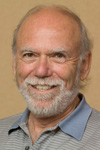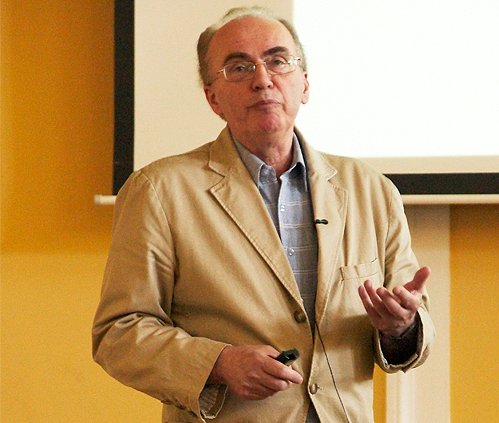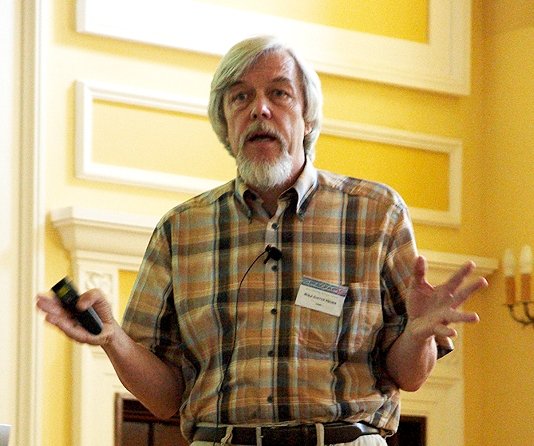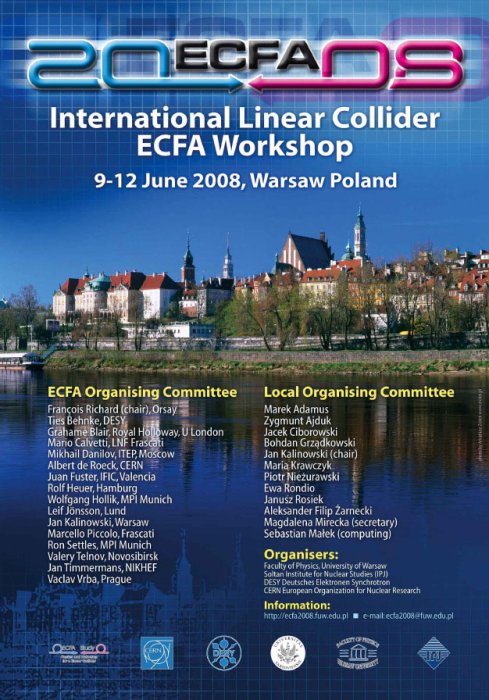Director's Corner
3 July 2008
 Barry Barish |
The ILC-ECFA Workshop in Warsaw
From 9 to 12 June, the Faculty of Physics at the University of Warsaw, Poland, together with the Institute of Nuclear Studies hosted a workshop under the mandate of the European Committee for Future Accelerators (ECFA) to discuss the physics and detectors for a linear collider. This well attended workshop covered a broad range of topics from the physics of a linear collider to R&D for detectors. The attendants discussed the physics in advance of and preparing for the first results from the Large Hadron Collider (LHC) at CERN that will set the future course for the energy frontier. A key presentation on the physics of linear colliders was given by Stefan Pokorski, University of Warsaw, on "Physics Beyond LHC", anticipating various possible physics scenarios that could emerge from the LHC. We also heard a related personal view of the future from Rolf Heuer (Research Director at DESY and future CERN Director-General) called, "European Vision of the Future of Particle Physics."
 Stefan Pokorski describes various scenarios for physics at a linear collider. Stefan Pokorski describes various scenarios for physics at a linear collider. |
 Rolf Heuer giving a personal view of the future. Rolf Heuer giving a personal view of the future. |
Pokorsky began his talk by stating that his was a "risky subject," because he was going to try to draw up a roadmap for the future, based on available hints, but noting that the most important input, LHC results, do not yet exist. Nevertheless, he plunged into his subject energetically and first he reminded us that despite the fantastic successes of the Standard Model there are many hints that point to physics beyond it, mentioning the "naturalness of the 1 TeV Fermi scale, dark matter, and at much higher energies, neutrino masses (see-saw mechanism), grand unification, leptogenesis, etc". He then went on to argue that the Standard Model with a Higgs particle would be fine if it were the "theory of everything," but that it is theoretically problematic when embedded into a bigger theory that has a new high mass scale. Therefore, according to Pokorsky, we have reasons to expect a new low mass scale for physics beyond the Standard Model, and he pointed out that so far hierarchical mass scales in particle physics have natural explanations.
As to what we may see around the 1-TeV mass scale, Pokorski noted that there are hundreds of theoretical models, but only a few basic concepts. He went on to describe various more or less exotic ideas like supersymmetry, Higgs doublet as a pseudo-Goldstone boson, Higgsless models and gravity in suitably compacted extra dimensions, concluding that our primary task will be to build what he called the 'next Standard Model' at the 1-TeV mass scale. He played out various scenarios of which he said that supersymmetry appears the most likely. Interestingly, he stressed the connections between particle physics and cosmology, including understanding the dark matter of the Universe.
The presentation by Rolf Heuer allowed a glimpse at the orientation and approach of the incoming CERN Director-General. From the title of his talk, one might have thought he would mostly review the main recommendations of the long-range strategy published last year, following a study requested by the CERN Council. Although that strategy was contained within Rolf's talk, he focused more on what he called his personal vision for the future. His vision is clearly driven by science! He described our main future tasks as getting ourselves ready to "explore the Dark Universe." Although he took a somewhat different approach from Pokorski, for example pointing out the important roles of the LHC and a future lepton collider in uncovering this science, the two talks had very synergistic and complementary underlying themes.
A special feature of the Warsaw meeting was the first meeting of the International Detector Advisory Group (IDAG), a new committee that has been formed to help guide the detector development for the ILC. This group's mandate is to help guide the Letter of Intent (LOI) process toward technical designs of complementary detectors that is being undertaken on the same timescale as the Global Design Effort Technical Design Report in 2012. Sakue Yamada, ILC Research Director, will discuss the wok of the IDAG, which is being chaired by Michel Davier, in his future Research Director reports in ILC NewsLine.
Ever since the GDE was formed, we have made a special effort to have joint meetings of the ILC physics and detector groups and the ILC accelerator R&D and design groups. We departed from that format this time, with the physics detector meeting sponsored as an ECFA workshop in Warsaw and the GDE meeting held at Dubna to explore Russia's ILC involvement, including their possible site for the machine. These separate meetings were an exception and we plan return to having a productive joint meeting, LCWS08 and ILC08, next autumn in Chicago.
-- Barry Barish
